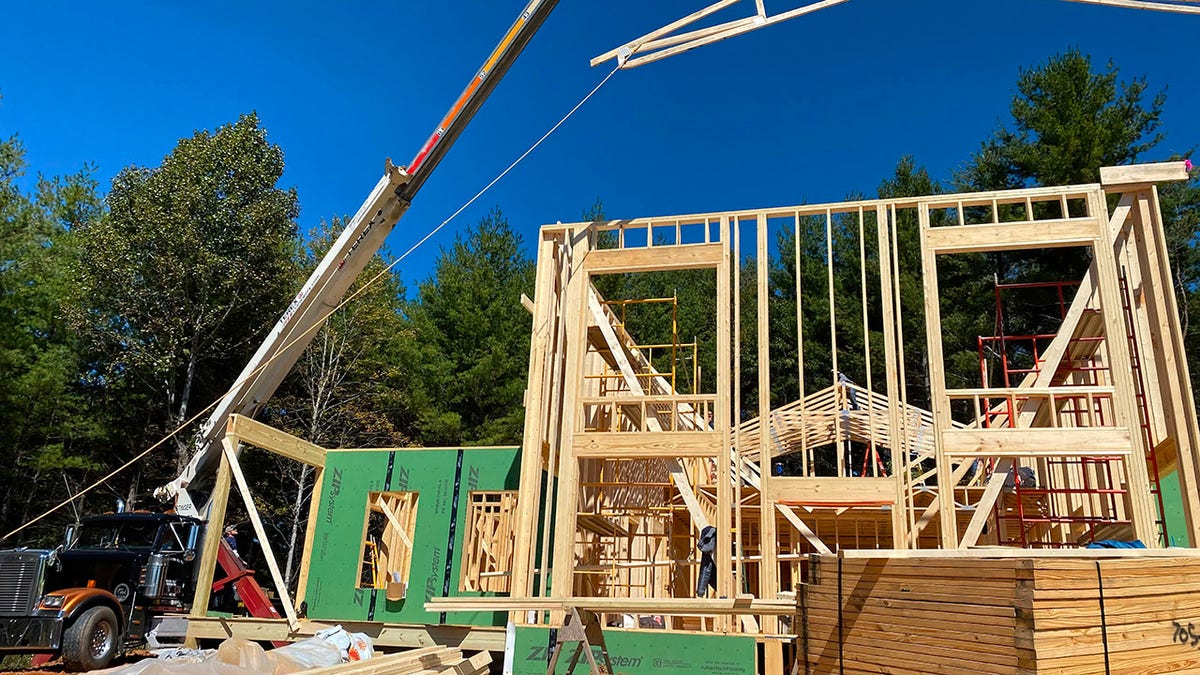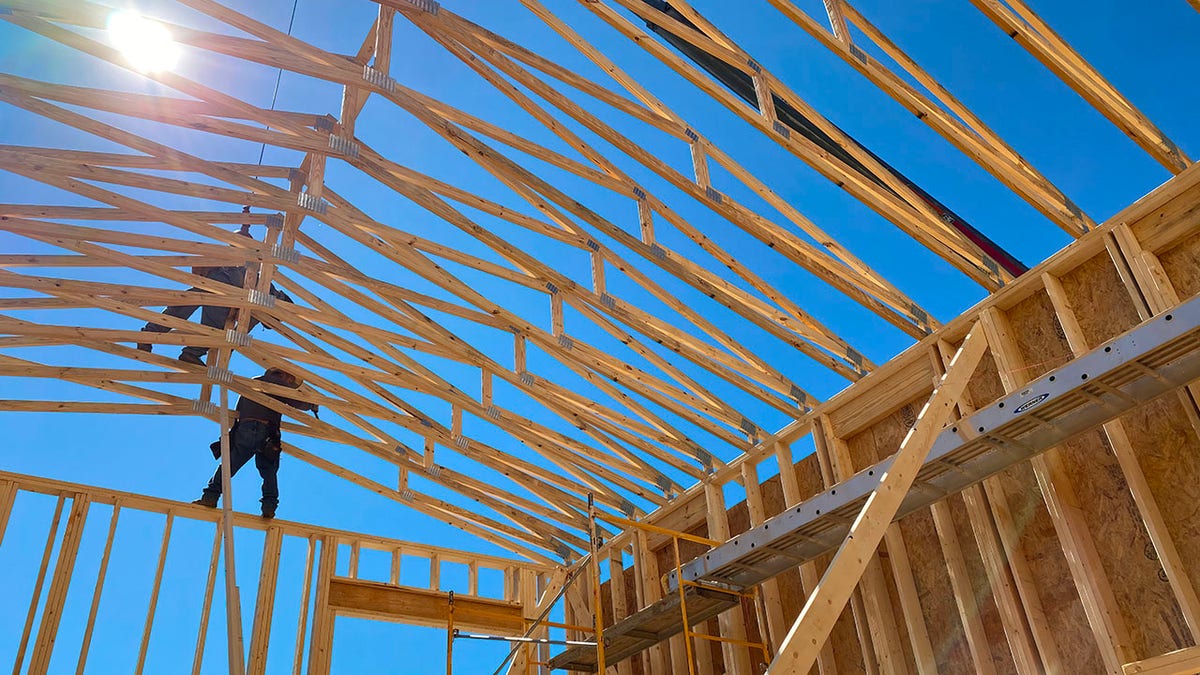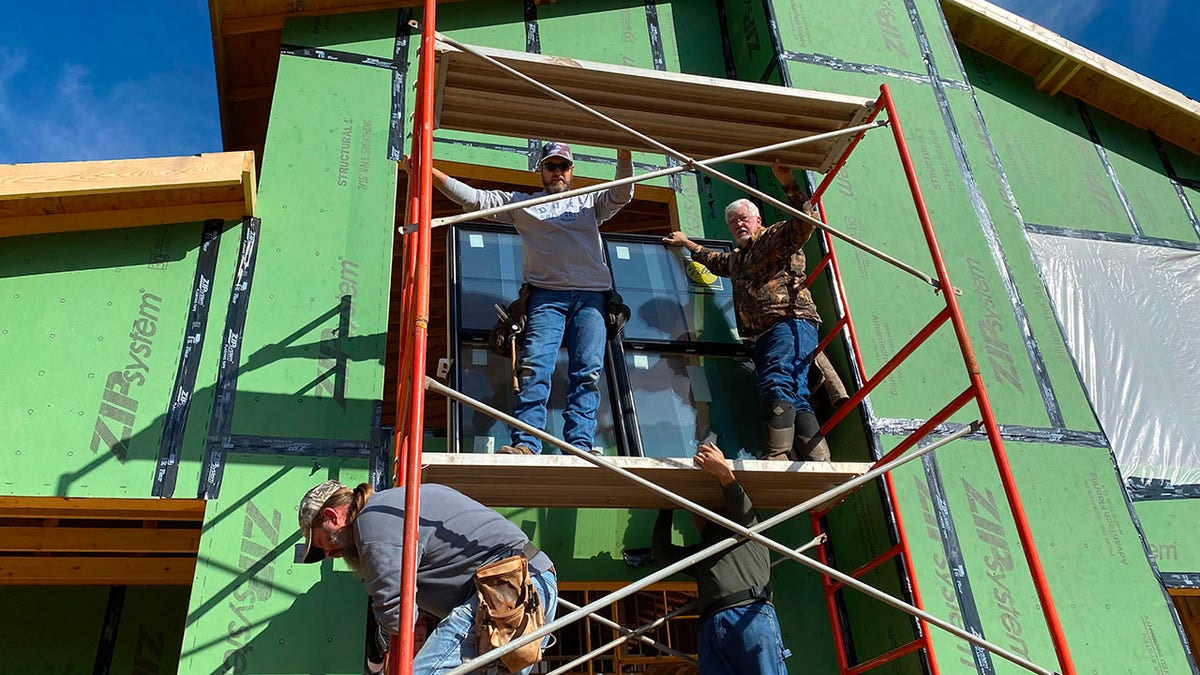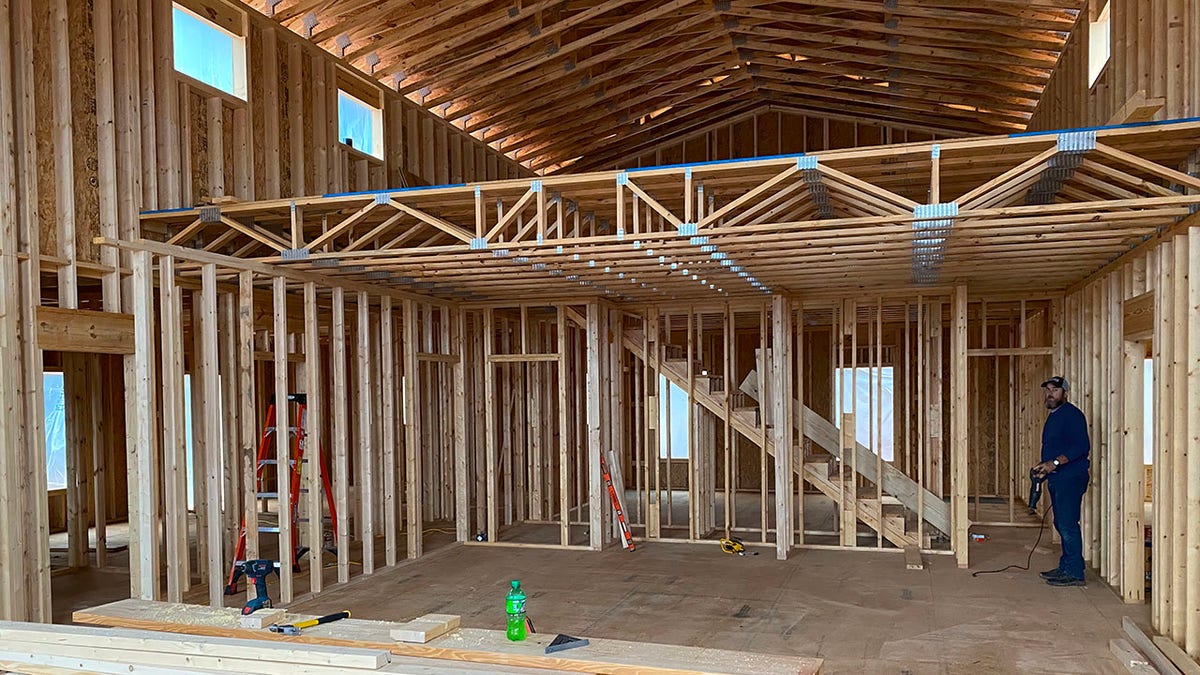Fox News Flash top headlines for February 1
Fox News Flash top headlines are here. Check out what's clicking on Foxnews.com.
A North Carolina nonprofit is building free homes for foster families aimed at keeping large sibling groups together and in their own home communities.
Alex Williams, the founder of Fostering Hopes, told Fox News that North Carolina limits how many children, including biological children, can be in a home.
"It's very, very difficult to find a family that's got the capacity to take two, certainly three, children," Williams, who's worked in foster care for a decade, said.

Crews build the first professional foster home in North Buncombe County. (Fostering Hopes)
In many cases, sibling groups are ultimately separated and sent across the state, "hardly ever seeing each other," Williams said, adding that it only "compounds the trauma they go through."
Williams estimated that close to 50% of the roughly 20,000 children who are in foster care in the state are placed outside their county.
To combat this "epidemic," Fostering Hopes teamed up with H3 Collective to create multiple professional foster homes throughout western North Carolina.

Crews build the first professional foster home in North Buncombe County. (Fostering Hopes)
NEW YORK BAKER SAYS HER BUSINESS CHANGED HER LIFE, NOW SHE'S SETTING OUT TO HELP OTHERS
The first one, in North Buncombe County, is already 60% done, he said.
The 3,600-square-foot home encompasses five bedrooms and two "bonus rooms." It will be big enough to house five children, which is generally the maximum allowed under one roof per state licensing regulations, according to Williams.
Volunteers donated their time and supplies to make sure the house will be completed by late spring when Williams hopes to hand over the keys to licensed foster parents free of charge.

Crews build the first professional foster home in North Buncombe County. (Fostering Hopes)
The only thing they need to do now is to find the couple who are willing to be full-time foster parents.
Fostering Hopes is well equipped to handle this challenge. Formed during the pandemic, Fostering Hopes has dedicated its time to "creating necessary and needed" changes to the foster care system.
Since it was established, the organization has worked to recruit potential foster parents on behalf of the state, which means it directs parents to the right Department of Social Services (DSS) office in their county to get licensed.
TEACHER BUILDS SCHOOL DESKS, FURNITURE FOR CHILDREN IN NEED
It's an important task, according to Williams, because it increases the likelihood that kids will be able to stay in their home county.
"It means they get to stay in the community they're familiar with," Williams said, adding that it's far more likely they'll be able to go home to "reunify with their parents in a healthy way."

Crews build the first professional foster home in North Buncombe County. (Fostering Hopes)
The organization also helps build community support for foster parents, first by educating community members, such as businesses or churches, about the "realities of foster care." Then, Fostering Hopes provides opportunities for those entities to support foster parents and children, "primarily so those foster parents don't burn out."
In the past, the organization has worked with retail partners to get more clothing and shoes to foster children and helped parks and recreation departments facilitate a foster parents' night out.
CLICK HERE TO GET THE FOX NEWS APP
The professional foster homes are the group's latest mission. Within the next three to five years, Williams hopes to create these large houses within 10 to 15 counties in the western part of the state.
However, his ultimate goal is to expand this model throughout the entire state
"The intention is to provide hope to children who typically find themselves without it," Williams said. "We hope to keep siblings together, to keep children in their home communities and provide dedicated families or parents for children who need them the most."
These homes, he said, "provide a base and focus to provide that hope within communities."










































